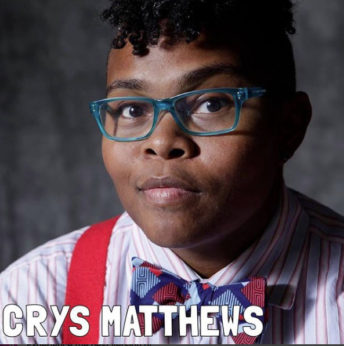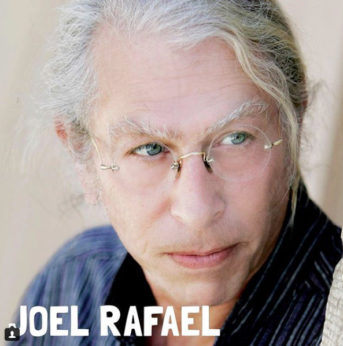
OKEMAH, Okla.—“I am out to sing songs that will prove to you that this is your world and that if it has hit you pretty hard and knocked you for a dozen loops, no matter what color, what size you are, how you are built, I am out to sing the songs that make you take pride in yourself and in your work,” Woody Guthrie said. “And the songs that I sing are made up for the most part by all sorts of folks just about like you.”
In the hometown where Woody grew up, Okemah, Okla, each year around his birthday the Woody Guthrie Folk Festival takes place. It’s sorta an old hippie crowd along with progressive young persons desiring to connect to Woody’s spirit. His guitar proudly embossed the words, “This machine kills fascists.” Woody’s songs and spirit embraced common working people, unions, and civil rights. Now in its 21st year the festival still draws thousands to Okemah to listen to bands, musicians, poets, and dreamers for a better tomorrow.
“My first year playing Woody Fest, well, come to think of it, it was the first festival,” Joel Rafael explains, “I did one of the songs from Woody’s songs that had not been recorded. It was about a lynching in Okemah. So I came to Okemah for the first time to sing about a lynching in Okemah.” The lynching was the Laura Nelson and family, which happened a few years before Woody was born. The song, Don’t kill my baby and my son, is a haunting melody to Woody’s words.
During one of many festivals Joel’s played, a woman of color sat in the audience. Joel was playing at the Crystal Theatre and singing, Don’t kill my baby and my son. A few rows back from where this woman of color was sitting, someone muttered the “n” word directed at her. Jordan Maran Pitzner is from southeastern Wisconsin and was that Black American, as she describes herself. “Couple of things going on, Woody’s song about Laura Nelson and her son that took place here in Okemah,” Jordan says. “Joel was singing this song, and a couple of rows back, I know the “n” word was uttered. It was directed at me, because the song was being sung, and clearly, I was Black, and this small-minded individual saying as if I did not belong there. He wanted to make me feel bad about being a Black woman, as this song was being sung.”
“Joel is an awesome human being. I thanked him for that song,” Jordan continued. “I shared my experience.” Joel took that experience and turned it into the song . “Which this song made me feel like I did belong at Woody Fest.” This song of Joel’s shows how the spirit of Woody Guthrie is still part of the work of these artists—writing songs about ordinary people and their experiences of life.

“This year it was awesome to see a first at the festival when another person of my heritage was a performing artist (Crys Matthews),” Jordan said exclusively to People’s World. “That was awesome to hear such profound things on the current state of affairs through her music.”
Jordan first came to Woody Fest in 2009 when she married a man who was a festival goer for years. “As a kid, I have sung This Land, by Woody. In my late teens, I heard Arlo Guthrie and his message. The name of Guthrie represents ideals that are a part of what I believe in,” Jordan said. To Jordan coming to Woody Fest has nothing to do with ethnicity but rather the singing, sharing of messages, in line with Woody. That is what it is for many festival goers.
Butch Hancock has been a stable participant of Woody Fest for years. His style of playing and words mimic the simplicity of Woody’s message. His 20-year-old son, Rory Hancock, literally grew up coming to Woody Fest each year. Now Rory is a performer himself and may appear shy, but his virtuoso guitar playing is phenomenal. His mother says Rory plays under the main performer never to upstage them but can play so much more than he shows.
Rory Hancock talked exclusively to People’s World: “I grew up in Terlingua, Texas. I imagine my family brought me here as a child, but I am more aware of being here for the past ten years,” Rory said. “I grew up with what my dad was playing and the other musicians that hung around.”
“The late night jams are very important to me and being a part of other artists jamming. The piano was my first instrument, and dad had me perform with him about seven years ago. Performing with my dad has given me an edge to stage time,” Rory said.
“Woody’s vocabulary influenced me a lot. Woody in a way may seem quick, rapid, but there is something inspirational. A simple man with his guitar playing songs from his soul,” Rory stated.
David Amram is one of the best known names of participants through the years of Woody Fest. He also has helped mentor young players through the years and Rory is one of them.

Part of the Saturday tradition is the Mary Jo Guthrie Pancake Breakfast. Mary Jo Guthrie is Woody Guthrie’s youngest sister, who still lives in the Okemah area. Joel Rafael tells the story on his connection to Rocky Road Tavern where the breakfast is held each year. Butch Hancock was one of many musicians joining Rafael this morning. This was a memorable Saturday breakfast as it landed upon the July 14th (Bastille Day) birthday of Woody Guthrie.
Saturday was a special day for the presentation of Si Kahn’s Mother Jones in Heaven. This is a one-actress musical play about the life of Mother Jones. Vivian Nesbitt was so wonderful as Mother Jones, you would forget this is a play and think you were listening to Mother Jones herself speak. You hear Mother Jones say, “The working class lives with danger every day.”
This statement may be truer now than it was a hundred years ago. Nesbitt portrays the life and thoughts of the outspoken rabblerouser believably. When Mother Jones tells of her husband, George Jones, and her three kids dying of yellow fever, you cringe in your seat. Her pain is felt by all. John Dillon, music director, plays beautifully with his guitar to Nesbitt’s singing. The songs are poignant, accurate and thought-provoking. The play leaves the audience with that radical notion that they can change the future. It is a message that Woody would have believed in wholeheartedly.
After the play the actress and musicians joined by a few others sat for an open Q & A. Specifically, in alignment with Woody and Mother Jones, the focus was upon union organizing. Joining Vivian and John Dillon were Tom Breiding and Dan Navarro. Breiding is a musician in residence with the United Mine Workers of America, and Navarro is vice-president of Screen Actors Guild (SAG-AFTRA) for recording artists and singers. All four spoke on how the unions have been a positive force for them and their art. They also spoke on the current move in America, in the new post-Janus era, to bust unions. They are speaking all over America to help reinforce union memberships just as Mother Jones and Woody Guthrie did.
Each year many trek to rural Oklahoma to Okfuskee County for Woody Fest. Hippies, progressives, old, young, come to hear songs of unions, true democracy, worker rights, and civil rights. It is comforting to see the huge crowds with good beliefs come together to listen to socialist music. All the songs and all the performers weave a thread of continuous evocations of Woody. Woody said, “One day we’ll all find out that all of our songs was just little notes in a great big song!”
You can read Woody Guthrie’s first Daily Worker column here.
Like free stuff? So do we. Here at People’s World, we believe strongly in the mission of keeping the labor and democratic movements informed so they are prepared for the struggle. But we need your help. While our content is free for readers (something we are proud of) it takes money — a lot of it — to produce and cover the stories you see in our pages. Only you, our readers and supporters, can keep us going. Only you can make sure we keep the news that matters free of paywalls and advertisements. If you enjoy reading People’s World and the stories we bring you, support our work by becoming a $5 monthly sustainer today.










